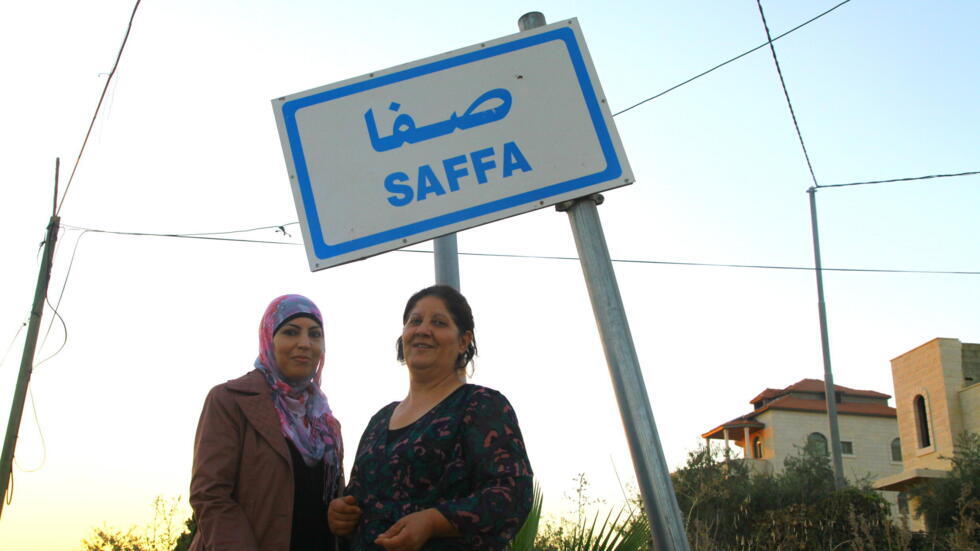Women demand voice in Palestinian local politics
Female representation may not top of the political agenda in the occupied West Bank but in forthcoming municipal elections, two groups show they’re not waiting for their rights to be given to them. Women of the Town is one of two all-female lists of candidates running in local polls on 20 October that could mark a sea-change in the way that politics is run in Palestine.
Issued on: Modified:

The sleepy village of Saffa sits close to Ramallah with Tel Aviv easily visible in the distance. In between, however, is the Separation Wall erected by Israel in 2002, meaning Saffa’s residents cannot enter Israel.

Saffa is classed as Area C under the 1995 Oslo accords, meaning that it is technically under Israeli rather than Palestinian control. so, combined with constant stalling over elections to the governing Palestinian Authority, local government is especially important to the villagers.
“It does everything for the village," Women of the Town, Elham Sami, explains. "It’s our government. It works on health issues, on education, on buildings, on infrastructure of the local administration, for roads, for agriculture, on the environment. It really is a small government.”
The list system allows parties or groups of people to propose candidates to fill the nine positions available on the local council.
, explains why the group is trying to push for female representation in the village:
“Women don’t have a role in village life as their opinions aren’t taken seriously," explains Women of the Town member, Suhair Saleh. "There is a lack of culture that would value women’s ideas and listen to the problems that affect them more, for example overcrowding in classrooms or women’s health issues.”
In a traditionally conservative village such as Saffa, political power is heavily based on family influence or allegiance to a political party. Sami says that, while there is a 20 per cent quota for women, their involvement has been mostly cosmetic until now.
“They take the women and put them on the list, but even the women who participate in the local council are excluded from the work, they put the women as a decoration,” she says.
An all-female list is very much a break from tradition but not every reaction to the creation of the group has been negative.
“When we announced the list in 2010, the first phone call I received was from a man," Sami says. "He told me, 'We are very proud of your list'.”
Even so, the women have had to constantly battle criticism from those who feel threatened by their ideas.

“When we went to the court to have the paper from the judge, a man came and said to me, “Ha! You are a list of women. Everything you take comes from us. You even take our trousers!' I told him, "We wear our own trousers, not yours'.”
Sami explains that “Women of the Town” takes a grassroots approach to tackling the wide-ranging social problems of the village:
“We represent all the women, all the youth, all the handicapped in the village.”
Even if they don’t win, the women intend to create a shadow women’s council to put pressure on the municipality to implement positive changes for women in the village.
To Shams Karajeh, a villager who is helping Women of the Town campaign, the list is about fundamental rights for women.
“They need to be heard," she explains. "Women everywhere have the right to be equal to men, so they should be equal and they should have the right to express their feelings and their needs.”
Daily newsletterReceive essential international news every morning
Subscribe